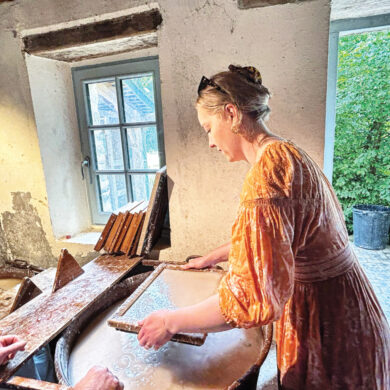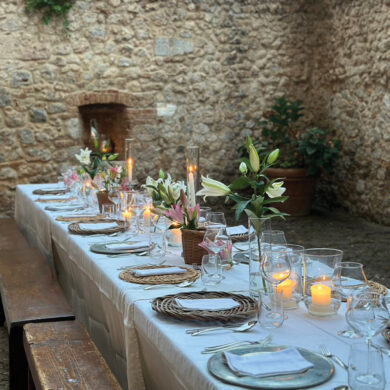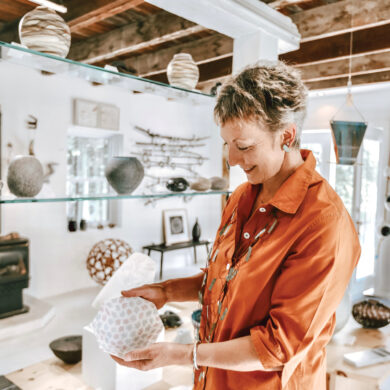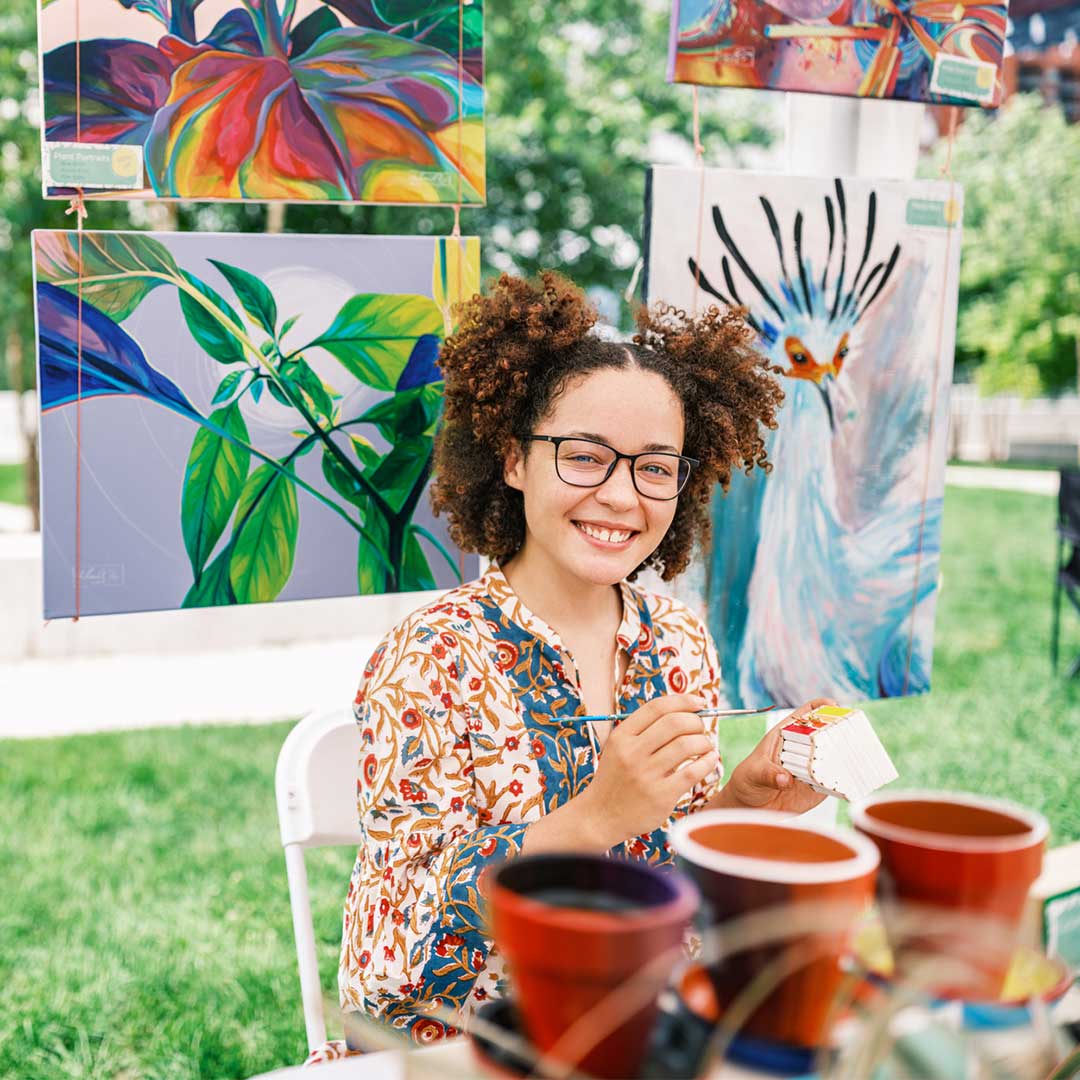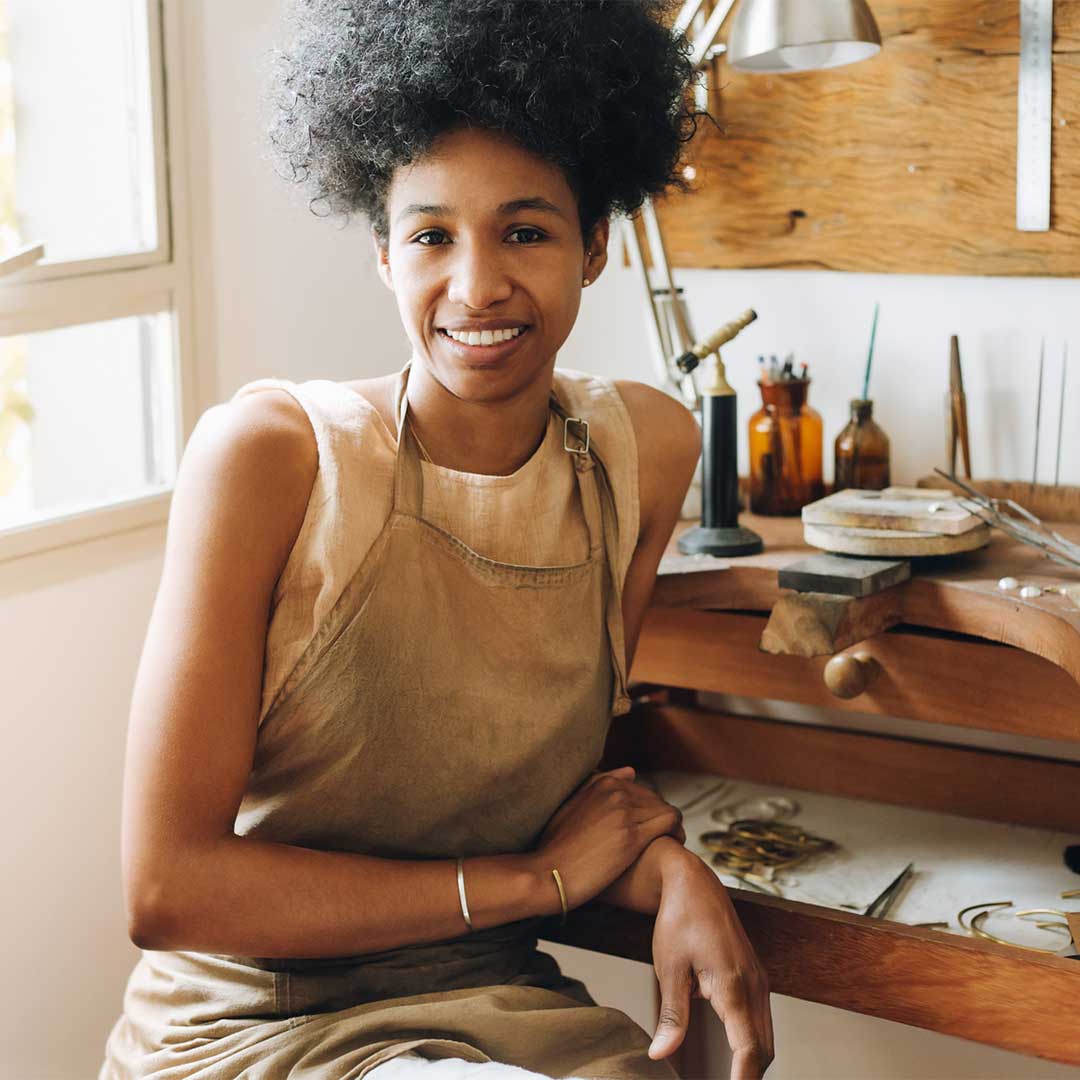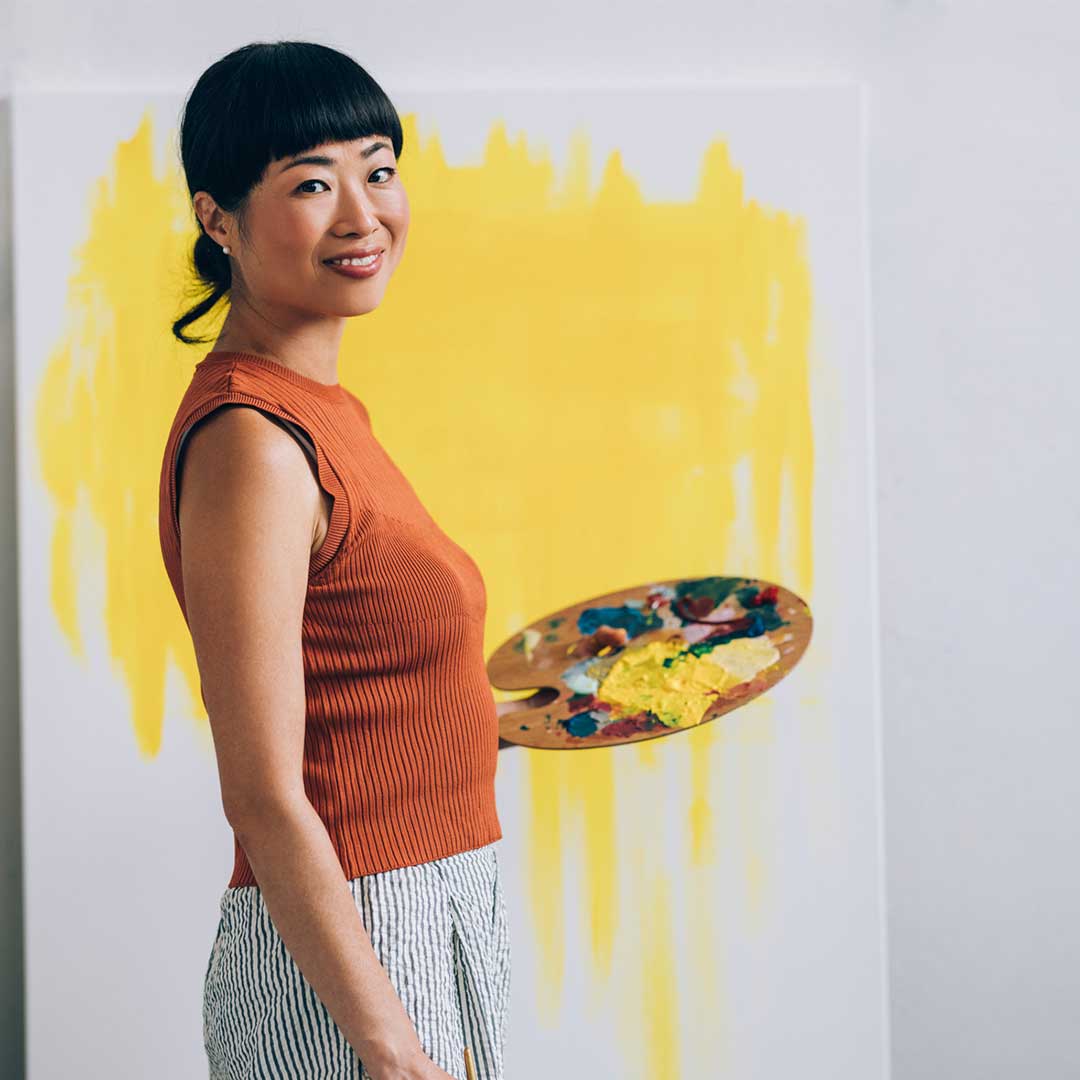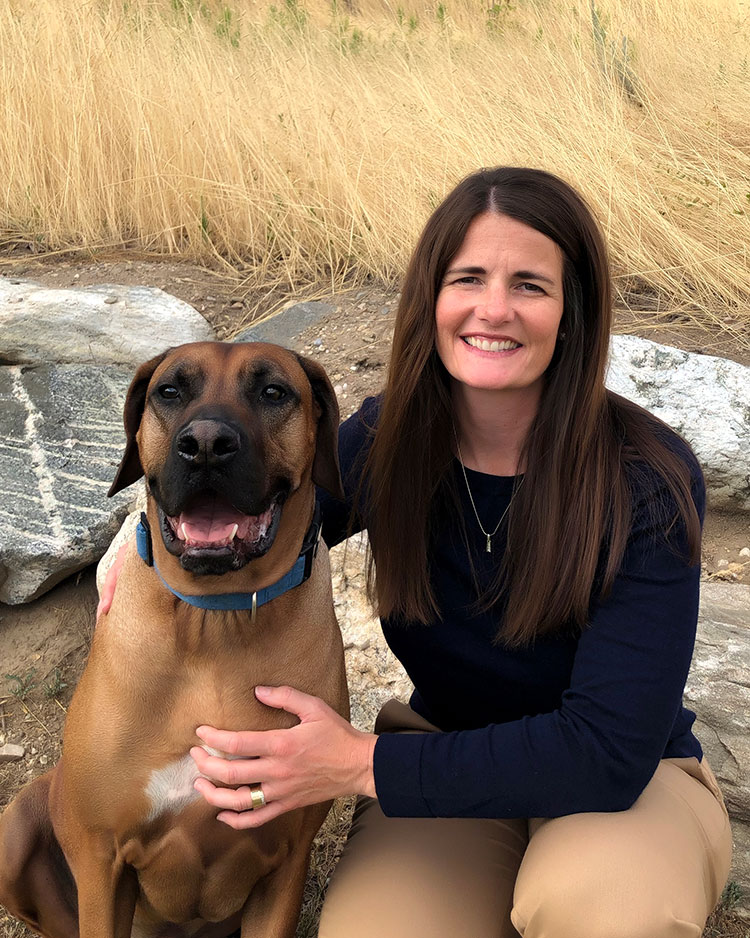
It is 4:45 a.m., and my alarm has woken me up for the day. It never does get easier, so I slowly and quietly move through my house to start each day. I quietly sit and drink a large glass of water while my dog eats his breakfast. We head out in the dark cool morning enjoying the quiet skies before the complexities of noise and the world take over. My health and financial well-being has been a practice of each day as I begin my mornings with self-care and intention.
Several years ago, while in high school, I came home to discover a notice from the bank indicating I had overdrawn my checking account. I quickly drove to the bank where I was kindly mentored by a professional woman on how to balance a checkbook. This influential moment had a strong impact on me, as I was a senior in high school working full time, living essentially on my own with an older sibling. There was no room for error when it came to my financial well-being. Having someone take the time to help me understand money was a small and simple gesture that has become more and more profound to me over time. I found that I was good at math and helping people, so just a few short months after high school, I was married and started my financial career as a bank teller.

Fast-forward five years, I was a banker helping others learn about money management and enjoying my career. I was also a mother of a beautiful 2-year-old little girl. Life was pretty good. Then, on Christmas morning, while spending time with my extended family (while my husband was working at the fire station) some of us had decided to go for a morning horseback ride. We were all set to go, but as I started riding, my horse decided to turn around and run back through the pasture. I fell from the horse and shattered my right humerus bone, which left me relying on my husband and mother for EVERYTHING over the next couple of days. During this time, I realized how much health and financial well-being collide with our daily lives.
As I spent many hours alone recovering, my practice of mindfulness began. Many life lessons occurred during this time including; gratitude, humility, and self-care/awareness. Through learning to take care of my body and by listening to what my spirit needed, I reached success on my journey to recovery. Financial stability was, however, crucial to allow the time and ability to recover and heal without additional stress over money.
This combination of our health and finances is a powerful protection to our loved ones and ourselves. Well-being is described as a state of being comfortable, healthy and/or happy. Money does not create these things; however, it has a great influence on them. As P.T. Barnum has said, “Money is a terrible master but an excellent servant.” This is true regardless of the size of a bank account. Financial statements and numbers are created by the story of our lives or the story of a business. It is the story that is most valuable and is protected by spending less than you make and saving a little each time you are paid. Financial management is the one of the most important activities of self-care and the ultimate measure of success over time. This can be accomplished by becoming informed and making better decisions.

There are a few questions to consider first before creating a money plan; however, first remember, small and simple steps allow us to be better than we were yesterday. Be kind, gentle and patient, one step at a time.
Our bodies and minds are a wonderful and powerful gift, creating a place of safety for our souls to reside.
The First Step: Understand your relationship with money
Most of us have been raised with conditions around how we were loved, how we felt loved or how we received love. Our experiences of how we feel therefore influence the way financial decisions are made. Habits and biases are created when we are young, which most often reflect the way our parents felt about money and how they managed it. Please read the following questions and consider your feelings to help you become mindful of your current relationship with money.
You just got promoted with a 30% increase in pay. What do you do with your first paycheck?
Your car just broke down, and you have an unexpected $500 repair bill. How do you pay for it?
You just had a health crisis, and you are unable to go to work for the next six to eight weeks. Can you afford your current lifestyle without a reoccurring paycheck?

Taking the time to reflect and having meaningful conversation about money creates a mindful practice for the financial decision process and allows us to create the futures we want. Part of planning and the conversation should include a health plan that aligns with your finances. For most, individual safety and peace of mind are the ultimate desire; it cannot be bought or determined by a financial number. It can only be obtained by what we do, how we do it and lastly, understanding why we are doing what we do. Preparing and managing health and financial well-being for ourselves keeps us proactive not reactive.
Our daily activities compound into weeks, months and years that can greatly add or take away from our futures.
When we have the choice to make a decision (proactive) we often have more decision to choose from. However, if we wait until we have forced ourselves into a corner, we become reactive instead of proactive, thus eliminating opportunities and choices, taking away from our own futures. This is most often a result of avoidance, which becomes a larger liability to the success of health and financial well-being. Once you have taken the time to reflect on your emotions and current activities, creating a vision for your future, you can begin to look at the financial numbers to determine the best pathway and financial practice for you and your loved ones.

It is 4:45 a.m., and my alarm has woken me up for the day. It never does get easier, so I slowly and quietly move through my house to start each day. I quietly sit and drink a large glass of water while my dog eats his breakfast. We head out in the dark cool morning enjoying the quiet skies before the complexities of noise and the world take over. My health and financial well-being has been a practice of each day as I begin my mornings with self-care and intention.
Several years ago, while in high school, I came home to discover a notice from the bank indicating I had overdrawn my checking account. I quickly drove to the bank where I was kindly mentored by a professional woman on how to balance a checkbook. This influential moment had a strong impact on me, as I was a senior in high school working full time, living essentially on my own with an older sibling. There was no room for error when it came to my financial well-being. Having someone take the time to help me understand money was a small and simple gesture that has become more and more profound to me over time. I found that I was good at math and helping people, so just a few short months after high school, I was married and started my financial career as a bank teller.

Fast-forward five years, I was a banker helping others learn about money management and enjoying my career. I was also a mother of a beautiful 2-year-old little girl. Life was pretty good. Then, on Christmas morning, while spending time with my extended family (while my husband was working at the fire station) some of us had decided to go for a morning horseback ride. We were all set to go, but as I started riding, my horse decided to turn around and run back through the pasture. I fell from the horse and shattered my right humerus bone, which left me relying on my husband and mother for EVERYTHING over the next couple of days. During this time, I realized how much health and financial well-being collide with our daily lives.
As I spent many hours alone recovering, my practice of mindfulness began. Many life lessons occurred during this time including; gratitude, humility, and self-care/awareness. Through learning to take care of my body and by listening to what my spirit needed, I reached success on my journey to recovery. Financial stability was, however, crucial to allow the time and ability to recover and heal without additional stress over money.
This combination of our health and finances is a powerful protection to our loved ones and ourselves. Well-being is described as a state of being comfortable, healthy and/or happy. Money does not create these things; however, it has a great influence on them. As P.T. Barnum has said, “Money is a terrible master but an excellent servant.” This is true regardless of the size of a bank account. Financial statements and numbers are created by the story of our lives or the story of a business. It is the story that is most valuable and is protected by spending less than you make and saving a little each time you are paid. Financial management is the one of the most important activities of self-care and the ultimate measure of success over time. This can be accomplished by becoming informed and making better decisions.

There are a few questions to consider first before creating a money plan; however, first remember, small and simple steps allow us to be better than we were yesterday. Be kind, gentle and patient, one step at a time.
Our bodies and minds are a wonderful and powerful gift, creating a place of safety for our souls to reside.
The First Step: Understand your relationship with money
Most of us have been raised with conditions around how we were loved, how we felt loved or how we received love. Our experiences of how we feel therefore influence the way financial decisions are made. Habits and biases are created when we are young, which most often reflect the way our parents felt about money and how they managed it. Please read the following questions and consider your feelings to help you become mindful of your current relationship with money.
You just got promoted with a 30% increase in pay. What do you do with your first paycheck?
Your car just broke down, and you have an unexpected $500 repair bill. How do you pay for it?
You just had a health crisis, and you are unable to go to work for the next six to eight weeks. Can you afford your current lifestyle without a reoccurring paycheck?

Taking the time to reflect and having meaningful conversation about money creates a mindful practice for the financial decision process and allows us to create the futures we want. Part of planning and the conversation should include a health plan that aligns with your finances. For most, individual safety and peace of mind are the ultimate desire; it cannot be bought or determined by a financial number. It can only be obtained by what we do, how we do it and lastly, understanding why we are doing what we do. Preparing and managing health and financial well-being for ourselves keeps us proactive not reactive.
Our daily activities compound into weeks, months and years that can greatly add or take away from our futures.
When we have the choice to make a decision (proactive) we often have more decision to choose from. However, if we wait until we have forced ourselves into a corner, we become reactive instead of proactive, thus eliminating opportunities and choices, taking away from our own futures. This is most often a result of avoidance, which becomes a larger liability to the success of health and financial well-being. Once you have taken the time to reflect on your emotions and current activities, creating a vision for your future, you can begin to look at the financial numbers to determine the best pathway and financial practice for you and your loved ones.





